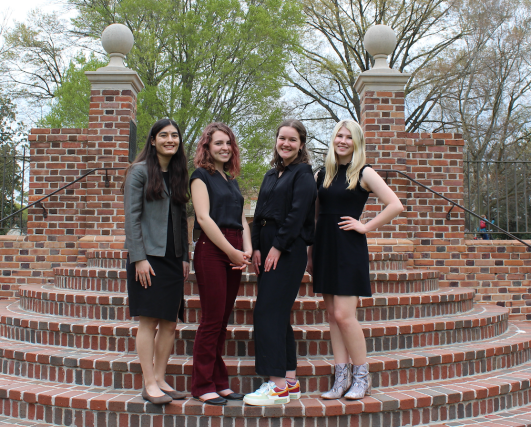This past summer, four students from the College of William and Mary traveled to Sarajevo, Bosnia and Herzegovina to participate in the American Bosnian Collaboration Project. The program is designed to generate English-language and intercultural communication skills for Bosnian primary school students.
Catherine Cable ’24, Lara Nayar ’24, Olivia Olson ’23 and Rosemary Ketron ’23 all participated in the program in dual capacities. The group primarily served as teachers for students of four different age groups. They also served as additional support staff for the program in various roles such as researchers, social media content creators and treasurers.
“As a co-teacher, I was responsible for working with my partners from the University of Sarajevo to teach lessons about intercultural competence and English language skills to Bosnian schoolchildren,” Nayar said. “And as a student researcher, I’m responsible for conducting qualitative research on the efficacy of different experiential learning techniques on children’s acquisition of intercultural competence skills.”
The ABC program has been operating at the College since 1999, however the ABC program’s current structure was just recently adopted in 2010. The program shifted from being based in Zenica to Sarajevo, and the College began partnering with a non-governmental organization, Creativus. The ABC program is primarily supported by Professor Paula Pickering and other faculty within the government department at the College.
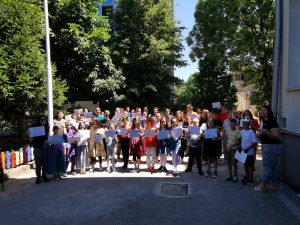
The program aims to foster intercultural and pacifist educational methods. This is accomplished through collaboration between the College’s undergraduate student teachers and graduate students from the University of Sarajevo who act as both student teachers and translators. The program also collects data and continues to conduct research on the use of hands-on teaching styles in promoting cross-cultural learning.
“A really helpful thing about having partners at the University of Sarajevo is they are all master’s students in pedagogy or education,” Cable said.
The student teachers applied to join the program in the fall of 2021. After being accepted, they took a course in the following spring semester designed to help with the transition into working and teaching non-American schoolchildren. The course sought to teach the students an appreciation for the history of Bosnia and Herzegovina, the value of hands-on learning in academic development and the importance of taking on the role of a collaborator in education. All the while, the participants fundraised and sought to strengthen connections between the program’s current iteration and its veterans.
Once the student teachers from the College arrived in Bosnia, the teaching segment of the program began. This portion of the ABC program was divided into a three-day online portion which then transitioned to fully in-person classes. These classes incorporated different teaching styles, alternating between lecture and discussion based lessons. Class topics were primarily designed around cultural, ecological and nonviolent communication themes, as well as diversity and tolerance. The exposure to English also allowed for indirect language acquisition, especially with the classes often being held outside and taught via games.
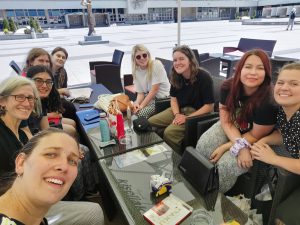
The two-week in-person segment of the program concluded with the different age groups demonstrating their learnings through creative projects. Using the themes of the previous three weeks, the students and their student teachers (American and Bosnian) put on plays, ranging in focus from the nonviolent salvation of a polluted animal kingdom to the exploration of marginalized identities through time travel.
Beyond allowing the students access to another unorthodox educational avenue, these final projects were critical in the data acquisition mission of the program. In utilizing the different types of teaching methods, the student teachers assessed how efficient each method was by handing out surveys before and after lessons to their students. The student teachers also found that they learned from the nuances their Bosnian coworkers were able to glean from the schoolchildren’s experiences.
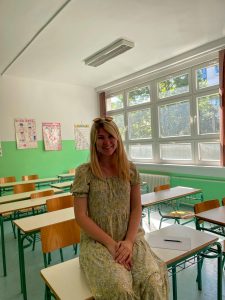
“For example, one of my experiential activities was teaching the children about nonviolent communication,” Olson said. “We gave them a conflict, and then they made a little skit showing how they would use nonviolent communication to resolve the conflict. That’s an example of experiential learning. Then we would go through and analyze ourselves if we thought it worked in how the students had reacted.”
As with countless other organizations, the ABC Project was disrupted by the COVID-19 pandemic. The last project before the current cohort traveled to Bosnia this year was held in the summer of 2019. With only two veteran students from the ABC Project’s last in-person year still at the College, the new student teachers recounted some of the logistical challenges faced while embarking on their trip to Bosnia.
“As with most programs that return to in-person after two years online, there were some kinks that we had to work out because we didn’t have a lot of remaining institutional knowledge of the program,” Cable said.
Additionally, there was initially substantial doubt as to whether in-person travel would be allowed at all, ending only when the Reeves Center Travel Advisory Board gave the program the go-ahead.
For the student teachers, the benefits they received from the program were myriad. They expressed satisfaction with the role they were able to play in bringing the schoolchildren opportunities and ideas that are not always readily available to them through traditional schooling.
“I remember specifically how some students expressed that bullying is not something they usually talk about in school, so it was very valuable for them to have the space to talk about subjects that are not in a school curriculum,” Olson said. “And it actually empowered them to ask us to talk or have lessons about certain topics.”
The student teachers were able to find much to love about Bosnia on a more personal level as well. Though all four of them were interviewed separately for this article, when asked about their favorite parts of their time abroad they all remarked on how special the bonds are that they have built with their fellow student teachers from the College. Each also gave glowing reviews of Sarajevo’s architectural diversity.
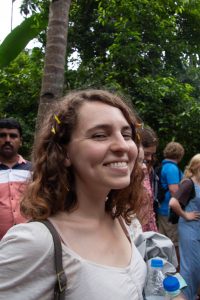
“It was conquered by the Ottoman Empire and also the Austro-Hungarian Empire, so it’s split between looking like Vienna on one half and looking like Turkey on the other half” Ketron said. “And it really is like two completely different places, like most people wouldn’t realize you’re in the same city. Both were important parts of their identity, and they didn’t want to get rid of either one.”
The students also touched upon the personal growth that they were able to experience throughout their journey, citing the radically different environments and new experiences that being first-time international teachers afforded them.
“It was really valuable for me to go to a country where my default and the way that I’m programmed to think and live and work is not everybody else’s default, and I had to adjust my expectations based on what was normal to others around me,” Nayar said.
Though the four students have since returned to Williamsburg, the project’s research component continues; the data analysis process is expected to last the entire fall semester. Although the program has a brand-new research focus every year, the conclusions drawn from this research on experiential learning efficacy and the experience that these four students gained this summer will aid their successors.
“I think we will have a lot of good knowledge moving forward for next year’s cohort because we understand what worked and what didn’t,” Cable said. “So we are able to help guide them and mentor them as they look towards hopefully returning in-person again next summer.”

